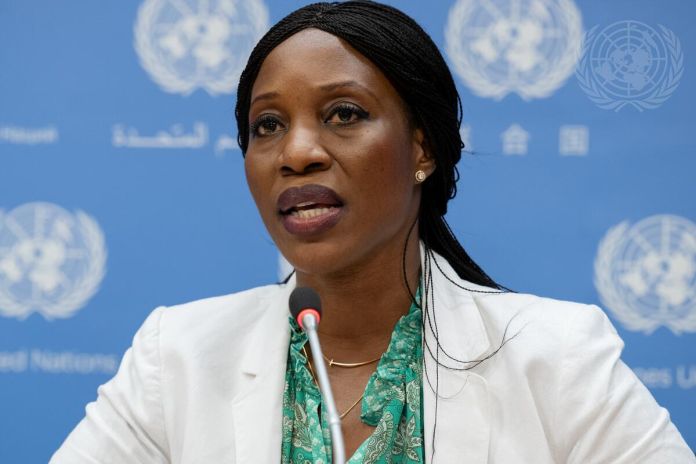Humanitarian catastrophe in Haiti requires urgent international action, OCHA

NEW YORK / HAITI, (OCHA) – Haiti’s multifaceted humanitarian emergency needs urgent attention and strategies beyond emergency, three senior UN and EU officials said today as they wrapped up a four-day visit to the country.
Representatives from OCHA, UNICEF, and the European Union’s Civil Protection and Humanitarian Aid Department (ECHO) saw firsthand the impact of ongoing violence that has upended Haitians’ daily lives.
“What Haitians want the most is peace, that will allow them to return to school, to farm their fields, to access basic services such as going to a hospital,” said Edem Wosornu, OCHA’s operations and advocacy director.
As clashes in the country continue, more than 578,000 Haitians are displaced, and nearly five million are facing acute hunger nearly half of the Haitian population with 1.6 million at risk of starvation. The violence has crippled Haiti’s agricultural sector a key source of income for families – and disrupted education and health care: More than 900 schools have been closed since January; and in the capital Port-au-Prince, nearly 40 percent of all in-patient health facilities are out of service. The violence has generated loss of income of families who used to be economically independent, crippling their ability to sufficiently feed them and provide healthcare. The majority of displaced families with school age children don’t know if they will return to school.
Wosornu – alongside UNICEF Director for Emergency Operations Lucia Elmi and ECHO Director Andrea Koulaimah – met with Haitian officials, including the new prime minster Gary Conille, as well as authorities in the cities of Les Cayes and Gonaives. They stressed that the international community must continue to support Haiti’s government in providing life-saving aid and development assistance.
“Millions of families are yearning for an end to this relentless violence. It is critical to step up protection services for women and children – who are bearing the brunt of this crisis – and fast-track humanitarian assistance for those in need”, UNICEF’s director for emergency operations, Lucia Elmi, said.
The 2024 Humanitarian Needs and Response Plan for Haiti calls for US$674 million. More than halfway through the year, the appeal is less than a quarter funded. The cost of inaction would be too high if humanitarian response is not collectively scaled up now in support of the Haitian population. Despite the challenging security situation, international and national humanitarian partners have managed to find solutions to access and assist the population throughout the country.
However, while humanitarian aid is vital, the officials also stressed that the country’s challenges are grounded in years of under-investment in basic social services and that humanitarian aid is a temporary fix that can’t solve the country’s deep-rooted, structural problems. “We need the humanitarian response to be anchored into sustainability, that the humanitarian response serves as a stepping stone to durable, sustainable recovery actions,” the EU’s humanitarian director for Latin America and the Caribbean, Andrea Koulaimah, said.
“We call on the international community not to miss this unique momentum and to step up their efforts and mobilize resources to address the pressing humanitarian and development needs.”
![]()
Source: caribbeannewsglobal.com

